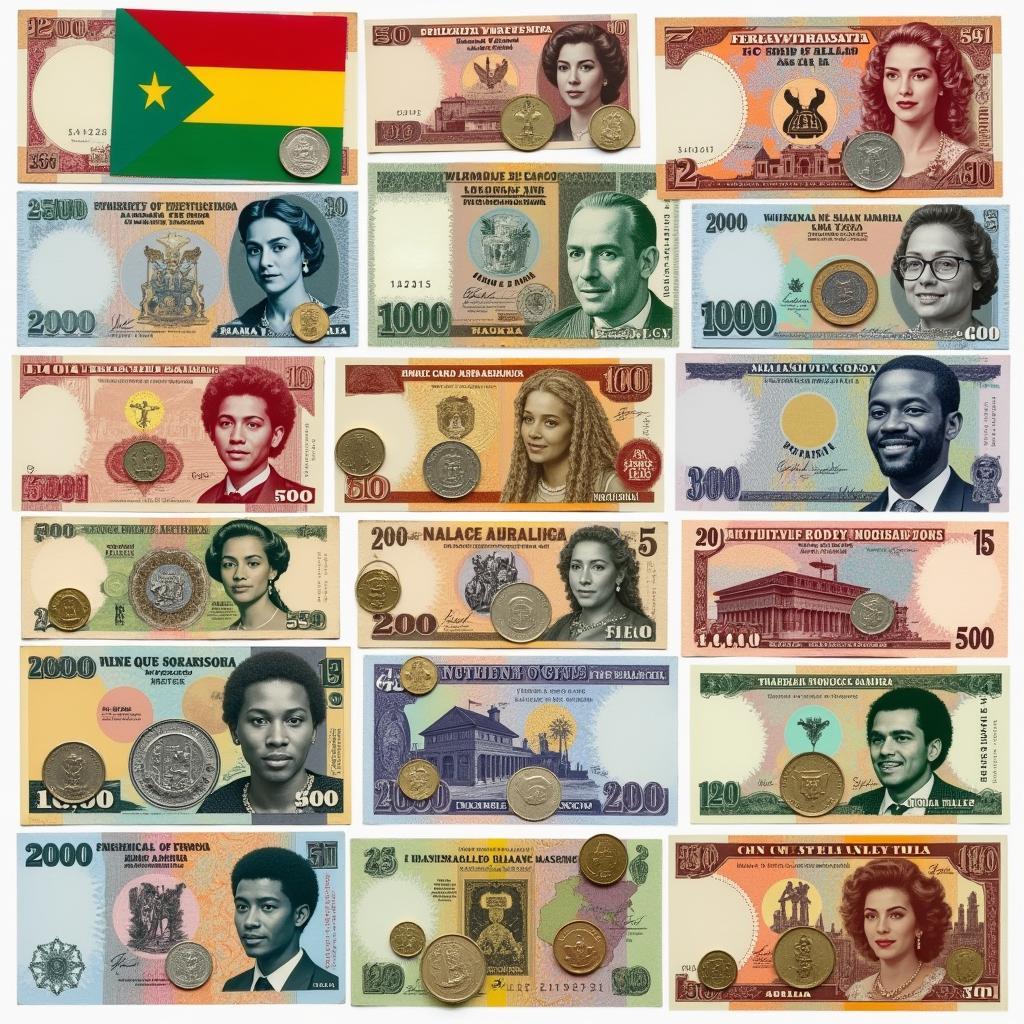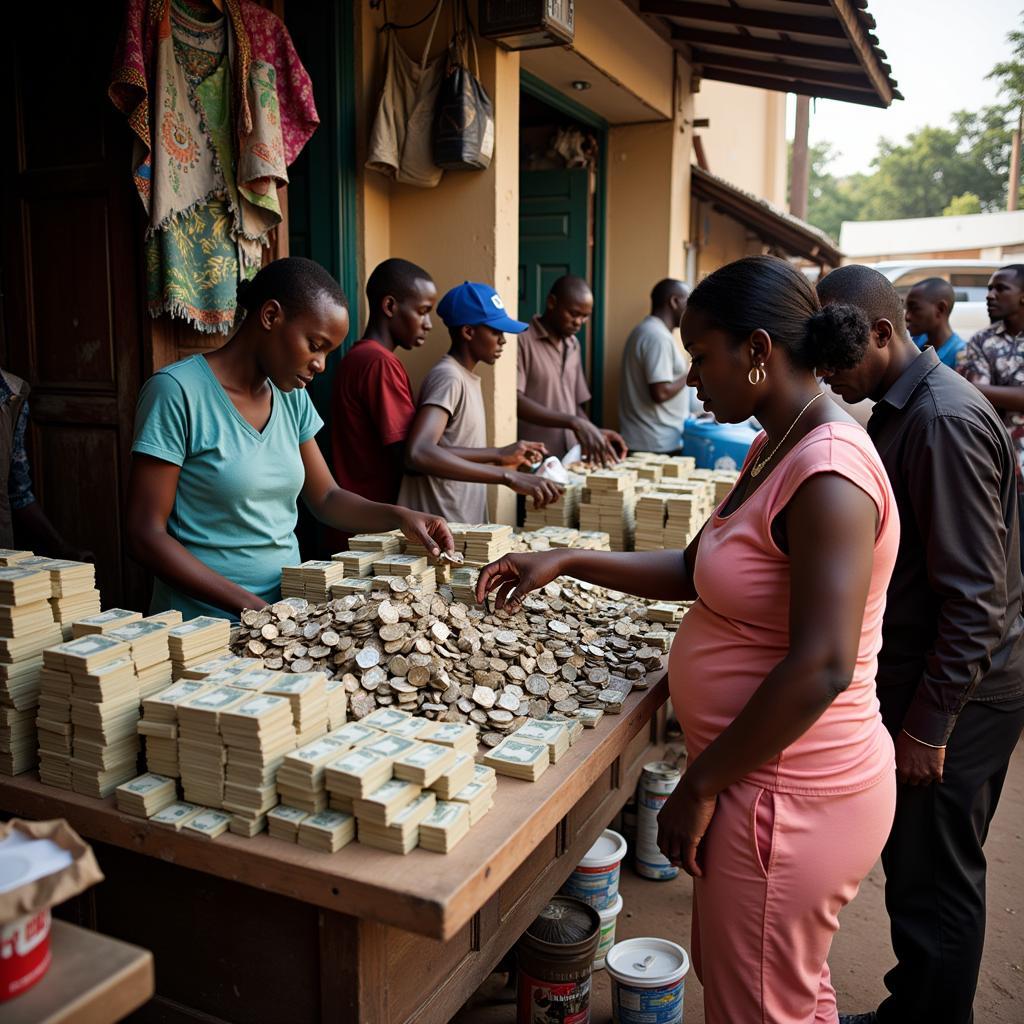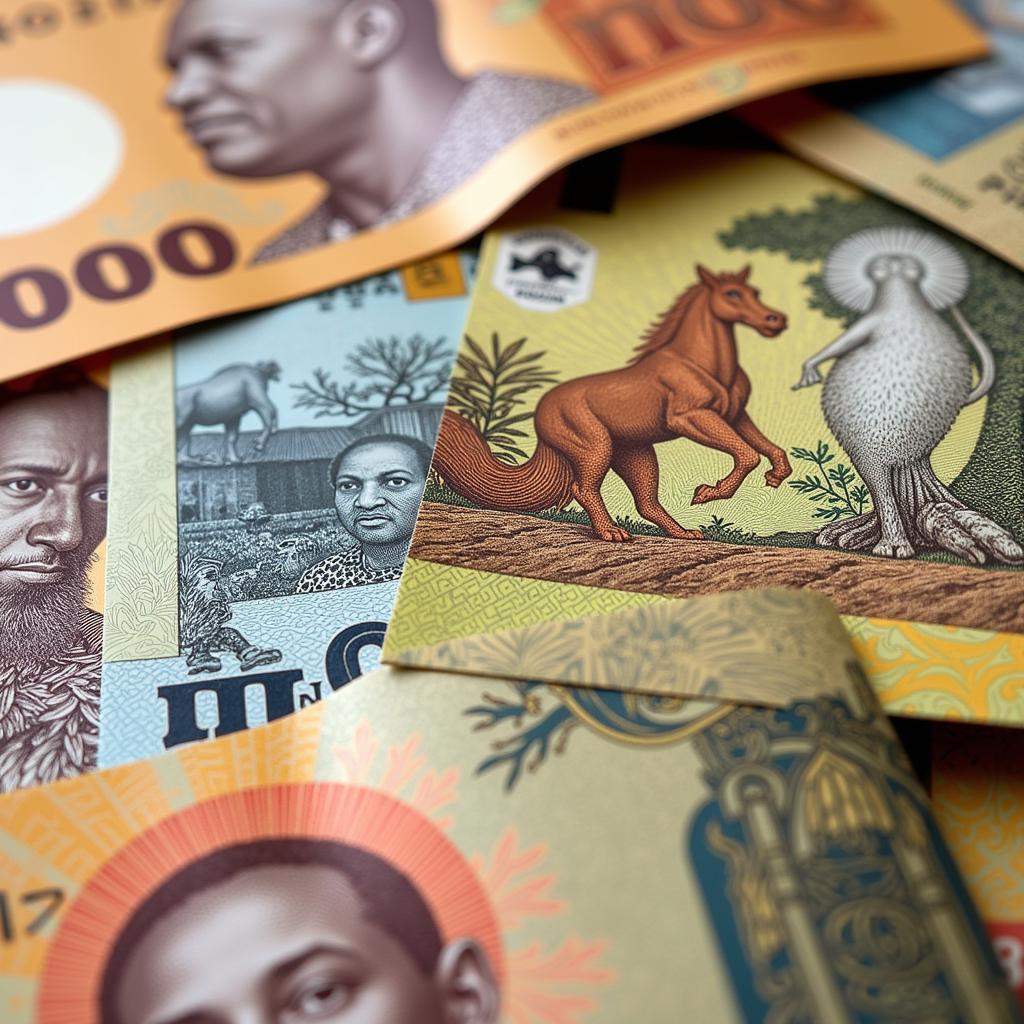Navigating the Diverse Landscape of African Currency: A Comprehensive Guide
African currency paints a vibrant tapestry, reflecting the continent’s rich history, cultural diversity, and economic evolution. From the bustling marketplaces of Marrakesh to the sprawling trading hubs of Lagos, understanding African currencies is essential for anyone engaging with this dynamic continent.
 Variety of African currencies
Variety of African currencies
A Historical Journey: From Colonial Legacies to Modern Monetary Systems
The story of African currency is intricately woven with the continent’s colonial past. European powers, during their dominance, introduced their own monetary systems, often pegged to their respective currencies. This influence is evident in the names of several African currencies today, such as the West African CFA franc, a vestige of the French colonial era.
However, with the wave of independence that swept across Africa in the mid-20th century, many nations sought to establish their own independent currencies. This transition marked a significant step in asserting economic sovereignty and forging a distinct post-colonial identity.
Deciphering the Acronyms: CFA Franc, Rand, Shilling, and More
Navigating the world of African currency can feel like deciphering a code, with a plethora of acronyms and unique names. Let’s break down some of the most prominent ones:
- CFA Franc: Used by 14 countries in West and Central Africa, the CFA franc is divided into two distinct but closely linked currencies: the West African CFA franc and the Central African CFA franc. Both are guaranteed by the French treasury, reflecting the enduring economic ties between France and its former colonies.
- South African Rand (ZAR): As the most traded currency in Africa, the South African Rand reflects the economic powerhouse of the region. Its value fluctuates on the global market, influenced by factors such as commodity prices and political stability.
- Kenyan Shilling (KES): A key player in East Africa, the Kenyan Shilling is known for its relative stability. Kenya’s robust tourism industry and agricultural exports contribute to its resilience.
 Currency exchange market in Africa
Currency exchange market in Africa
Beyond the Big Players: Exploring Regional Currency Unions
Africa’s quest for economic integration has led to the emergence of regional currency unions. These unions aim to facilitate trade, reduce transaction costs, and promote economic stability among member states. One such example is the West African Monetary Zone (WAMZ), which plans to introduce a single currency, the “Eco,” to replace the currencies of its member states.
The Digital Revolution: Mobile Money and the Future of African Currency
Africa stands at the forefront of the mobile money revolution. Services like M-Pesa in Kenya have transformed financial inclusion, allowing millions to access financial services through their mobile phones. This surge in mobile money adoption has profound implications for the future of African currency, potentially paving the way for digital currencies and innovative financial technologies.
african capitals in alphabetical order
Currency Fluctuations and Economic Impact
The value of African currencies is influenced by a myriad of factors, including commodity prices, global economic trends, political stability, and investor confidence. Fluctuations in currency value can impact import and export prices, inflation rates, and overall economic growth.
Understanding the Cultural Significance of African Currency
Beyond their economic value, African currencies often carry profound cultural significance. The intricate designs on banknotes and coins frequently depict national heroes, iconic landmarks, and vibrant elements of local flora and fauna.
 Cultural elements on African currency
Cultural elements on African currency
For instance, the Ghanaian Cedi features portraits of the “Big Six,” key figures in Ghana’s independence movement, embodying national pride and historical memory.
Conclusion: Embracing the Diversity of African Currency
From the echoes of colonial legacies to the rise of digital innovation, African currency embodies a continent in constant flux. Understanding the complexities and nuances of African currencies is crucial for navigating the economic landscape, appreciating the historical context, and engaging with the vibrant cultures of this diverse continent.
FAQs about African Currency
1. What is the strongest currency in Africa?
The currencies of oil-rich nations like Libya and Algeria often rank high in terms of value against major currencies like the US dollar.
2. Is it easy to exchange currency in Africa?
Currency exchange is generally accessible in major cities and tourist destinations. Bureaus de change and banks are common options.
3. Are credit cards widely accepted in Africa?
Credit card acceptance varies widely. It’s advisable to carry local currency, especially in rural areas and smaller establishments.
4. What are the challenges facing African currencies?
Volatility, inflation, and limited access to global financial markets pose challenges to some African currencies.
5. How does mobile money impact African currency?
Mobile money is driving financial inclusion and may influence the development of digital currencies in the future.
Exploring Further: Delving Deeper into African Culture and Art
To further enrich your understanding of the continent, explore the interconnectedness of African and Indian art african indian art or uncover the historical ties between Africa and Eastern Oman african eastern oman.
Need Assistance? Contact Us!
For any inquiries or assistance related to Africa, reach out to our dedicated team at +255768904061 or kaka.mag@gmail.com. You can also visit us at Mbarali DC Mawindi, Kangaga, Tanzania. Our customer service is available 24/7.

